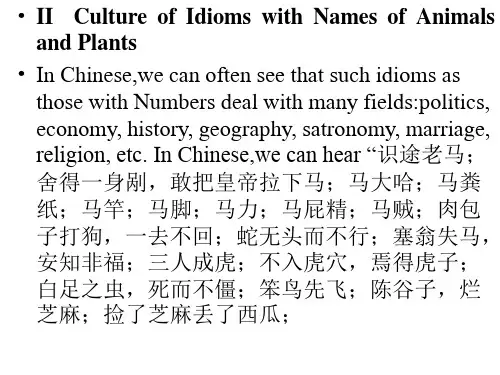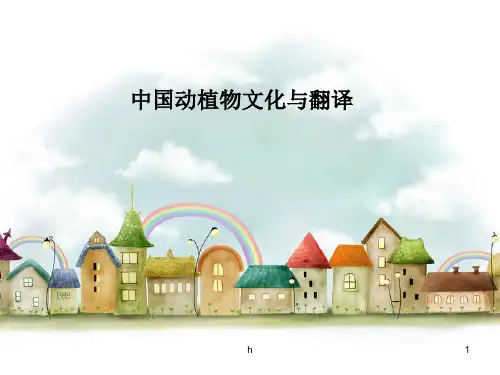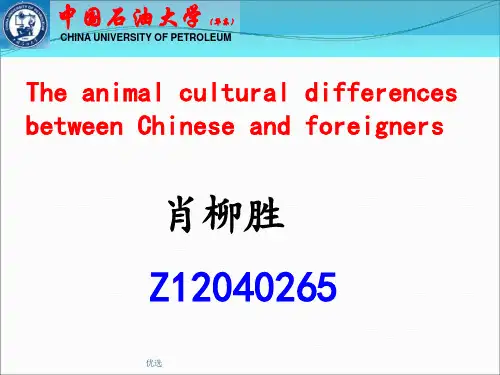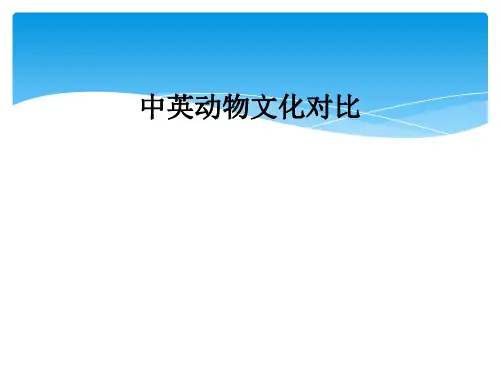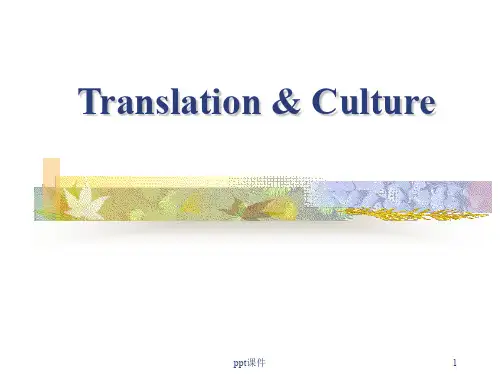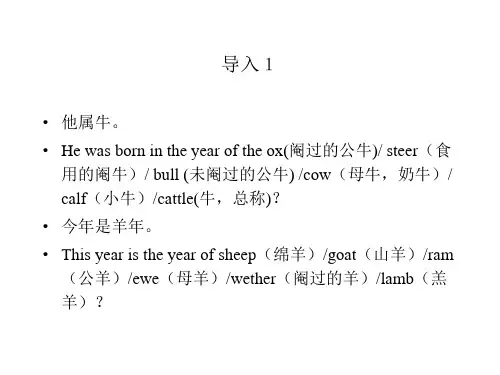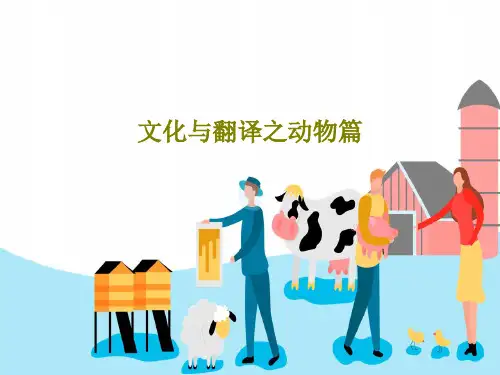动物对比:汉语的牛 = 英语的马
• 中国人说“吹牛”,英美人说 talk horse • 中国人说“壮得象头牛”,英美人说 as strong as
a horse • 中国人形容一个人固执 ,就说他“犟得象头
牛”,英美人形容为 as stubborn as a mule (骡子 也是马的变种后代) , • 中国人说“牛不喝水强按头”,英美人说 you can pull a horse to a river , but you can not make him drink. • 汉语中任劳任怨地工作的人被称为“老黄牛”, 英美人说work like a willing horse.
the poor.
动物对比: 英汉翻译中的牛2
• 宁为鸡首 , 不为牛后: Better be a small fish in a big pond than a big fish in a small pond.Better be the head of a dog than the tail of the lion.
动物对比: 汉语的牛和英语的牛1
• 牛眼睛”,英美人说成 ox-eye 或 ox-eyed • 牛在英汉两种文化中还象征着勇敢 ,汉语中说
“初生牛犊不畏虎”,英文中有take the bull by the horns ,形容一个人大胆而果断地处理困难局 面。 • 中国人说“牛脾气”,英美人说bullish or bullheaded
• a cock and bull story 形容荒诞的故事 • 小牛犊在英文中称为 calf ,故 calf love 比喻青少
年的初恋 ,英谚 云:Calf love , half love ;old love , cold love. (年青人的爱三心二 意 ,老年人的爱深 藏心底。)
